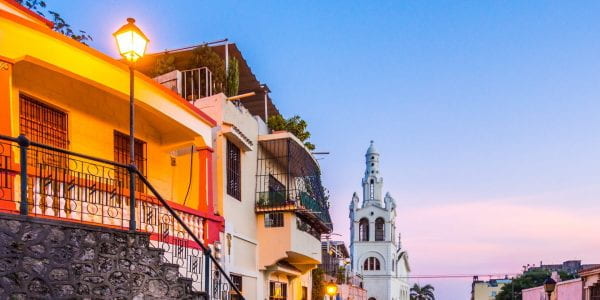Homicide rates in the Dominican Republic are quite high, with the reported statistic being 19 per 100,000 inhabitants. To put this number into perspective, the United States homicide rate is 5.3 per 100,000 inhabitants. Today we got the opportunity to discuss the Dominican Republic Criminal Justice System with Professor Carlos N. Mesa De Los Santos. Throughout the duration of this discussion, I was able to identify some similarities and differences in the United States and the Dominican Republic Criminal Justice System. I will address the two respectively in the following text.
As one may assume, the Dominican Republic is not immune to the existence of discrimination based on physical characteristics and/or materialistic objects. The Dominican Republic police officers assume an individual’s ability to participate in criminal activities based off the pigmentation of their skin, the kind of vehicle they drive, the way in which their head is shaved, and the quality of the clothes that he/she wears. As in the United States prison system, interns (inmates) in the Dominican Republic are provided with various outlets, such as sports, books, and other leisure activities, to maintain the self-worth of the intern. Another similarity between the two countries is that reinstated citizens are often refused employment due to the stigma associated with having a criminal history.
Some of the following differences I am in agreeance with, the others not so much. The Dominican Republic does not have the death penalty as a form of punishment. However, it is commonly understood that the police officers are presented with only two options, to arrest the individual engaging in illegal activity or kill them. In fact, according to Professor Santos majority of the reported homicides are committed by the police. Interns are also not subjected to prison labor, whereas, in the United States, prisoners are more than often put to work for the profit of major corporations or the government. Lastly, in comparison to the United States, the prison is relatively lenient on interns regarding visits and telephone calls. The interns are given free will to call anyone they wish without the fear of their calls being monitored. In terms of visits, the interns are allotted a certain number of visits a week and in most cases, these are conjugal visits; which is especially problematic as it has been shown to feed the human trafficking issue.
not so much. The Dominican Republic does not have the death penalty as a form of punishment. However, it is commonly understood that the police officers are presented with only two options, to arrest the individual engaging in illegal activity or kill them. In fact, according to Professor Santos majority of the reported homicides are committed by the police. Interns are also not subjected to prison labor, whereas, in the United States, prisoners are more than often put to work for the profit of major corporations or the government. Lastly, in comparison to the United States, the prison is relatively lenient on interns regarding visits and telephone calls. The interns are given free will to call anyone they wish without the fear of their calls being monitored. In terms of visits, the interns are allotted a certain number of visits a week and in most cases, these are conjugal visits; which is especially problematic as it has been shown to feed the human trafficking issue.
I highlight these characteristics of the Dominican Republic Criminal Justice System to show that prison reform is not only needed in the United States but in various countries worldwide. People of color and low socioeconomic status continue to be oppressed and are constantly condemned for the very same crimes that the wealthy commit. Whereas, many people of low socioeconomic status commit these offenses as an attempt to provide for their families. In no way, shape or form am I advocating for violence, but I can empathize with individuals on both sides of the fence and I hope that you can do the same. It is crucial that we look at the criminal concerns of a country with a holistic lens and compose innovative solutions based on the comprehensive findings to create a criminal justice system that benefits our communities.


